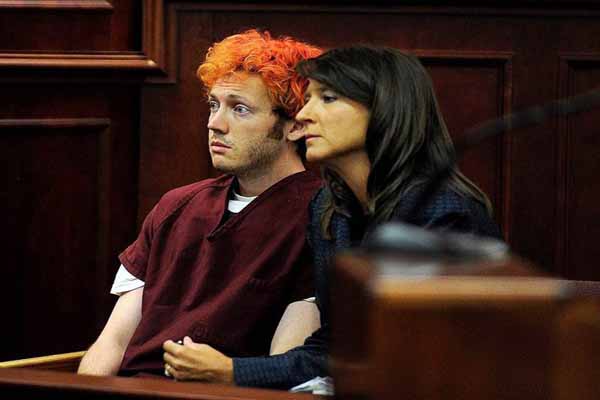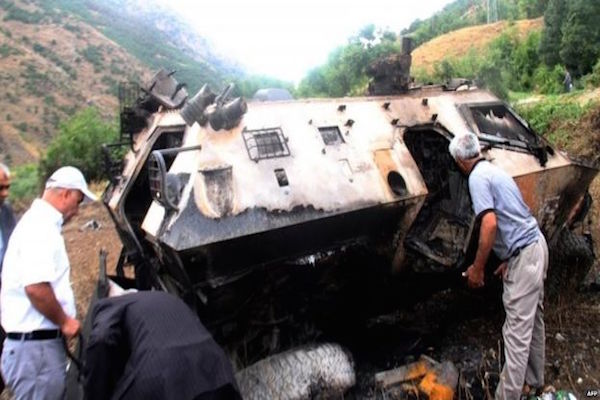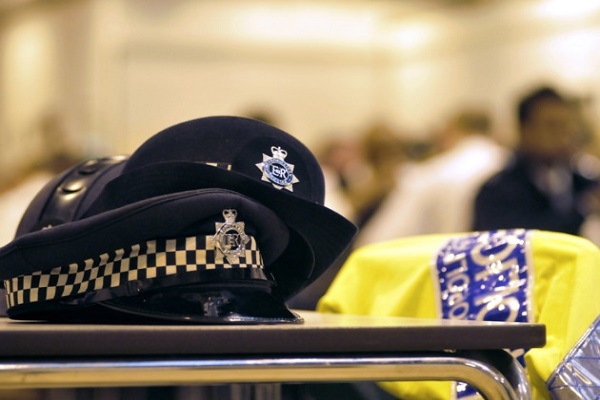District Attorney George Brauchler's formal call for the death penalty at a hearing on Monday came after his rejection last week of a defense suggestion that James Holmes would be willing to plead guilty in exchange for a life prison term without parole. Holmes, a 25-year-old former graduate student of neuroscience, is accused of opening fire inside a multiplex theater in suburban Denver during a midnight screening of the Batman movie last July. It was a rampage that ranks as one of the deadliest mass shootings ever in the United States and helped to reignite a national debate over gun control. Holmes is charged with multiple counts of murder and attempted murder in the shooting spree, which also wounded 58 moviegoers. A dozen other people suffered non-gunshot injuries as they fled the cinema in Aurora, Colorado.
"My determination for James Eagan Holmes - justice is death," Brauchler told the judge at the start of the latest court hearing in Centennial, Colorado, outside Denver.
Holmes, who has grown a shaggy beard and longer hair since his arrest, showed no emotion as he sat silently at the defense table, shackled and wearing red prison garb and flanked by his lawyers.
When he first entered the courtroom, he glanced briefly at his parents, who were sitting with spectators.
There was an audible gasp from the victims' side of the courtroom when Brauchler made his announcement, and Holmes' parents looked grimly at one another.
TRIAL NEXT YEAR
The Aurora massacre was the most lethal of several mass shootings in 2012, until a gunman killed 20 children and six adults at an elementary school in Newtown, Connecticut, in December.
The public outcry over the shootings pushed the debate over gun control versus the constitutionally protected right to bear arms back to the forefront of U.S. politics and led to tougher gun laws in both New York state and Colorado.
Arapahoe County District Judge William Sylvester, who had presided over the case since its inception, originally set a trial date for Aug. 5 of this year.
But after prosecutors announced their plans to seek the death penalty, a factor likely to draw out the proceedings, Sylvester reassigned the case to a different judge, Carlos Samour Jr., who set a new trial date for Feb. 3, 2014.
Samour said he expected the trial would last about four months and overruled a request by defense lawyers to push back the start of the trial until the summer or fall of next year.
A not-guilty plea was entered on Holmes' behalf last month but the door remains open to the defense to substitute a plea of not guilty by reason of insanity.
Holmes' attorneys said in a filing last week that they were prepared to mount an insanity defense. But they also wrote that prior to his arraignment on March 12, Holmes "made an offer to the prosecution to resolve the case by pleading guilty and spending the rest of his life in prison without the opportunity for parole."
Holmes' lawyers said prosecutors had not accepted the offer. And in a written response Brauchler called the defense move improper at this stage of the case, saying, "it was filed for the intended purpose of generating the predictable pretrial publicity."
"The only conclusion that an objective reader would reach ... is that the defendant knows that he is guilty, the defense attorneys know he is guilty and that both of them know that he was not criminally insane," Brauchler wrote.
Brauchler's intentions were foreshadowed in February when he announced he had assigned a death-penalty specialist to the prosecution team.
In court pleadings, public defenders Daniel King and Tamara Brady have said Holmes has been hospitalized twice since his arrest, once for "potential self-inflicted injuries."
At one point, jail officials determined Holmes was a danger to himself and in "immediate need of a psychiatric evaluation." He was transported by ambulance to a Denver psychiatric ward "where he was held for several days, frequently in restraints," his lawyers wrote.



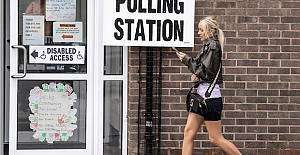 Advice for Enfield residents ahead of the General Election
Advice for Enfield residents ahead of the General Election Sunak promises tax cuts, economic stability, Conservative Party election manifesto
Sunak promises tax cuts, economic stability, Conservative Party election manifesto Ertan Karpazli, an independent MP candidate for the Enfield North constituency
Ertan Karpazli, an independent MP candidate for the Enfield North constituency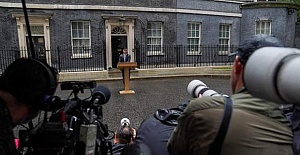 Rishi Sunak announces a general election in a statement outside Downing Street
Rishi Sunak announces a general election in a statement outside Downing Street Residents of Spanish island of Mallorca launch initiative to thank tourists amid protests over mass tourism
Residents of Spanish island of Mallorca launch initiative to thank tourists amid protests over mass tourism Srebrenica Remembered, Lessons for Justice and Peace! YEE London held a reflective event
Srebrenica Remembered, Lessons for Justice and Peace! YEE London held a reflective event British Premier Keir Starmer to reset UK-EU relations with high-profile meetings
British Premier Keir Starmer to reset UK-EU relations with high-profile meetings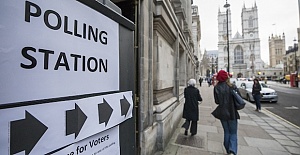 Voters head to polls for UK general election
Voters head to polls for UK general election The Swiss official will take charge of the match between Real Madrid and Atalanta in Warsaw
The Swiss official will take charge of the match between Real Madrid and Atalanta in Warsaw Applications are now open for Walking and Cycling Grants London until 9 September 2024
Applications are now open for Walking and Cycling Grants London until 9 September 2024  Two Circles also appointed as exclusive media sales agency for UEFA Women’s Champions League
Two Circles also appointed as exclusive media sales agency for UEFA Women’s Champions League  England manager Gareth Southgate has resigned two days after defeat by Spain
England manager Gareth Southgate has resigned two days after defeat by Spain Joyce and Snell's planning application gets stamp of approval
Joyce and Snell's planning application gets stamp of approval The amount of bounce back loans fully repaid is just %13
The amount of bounce back loans fully repaid is just %13 Petrol prices higher than they should be, says RAC
Petrol prices higher than they should be, says RAC UEFA and Mastercard renew UEFA Champions League partnership
UEFA and Mastercard renew UEFA Champions League partnership




